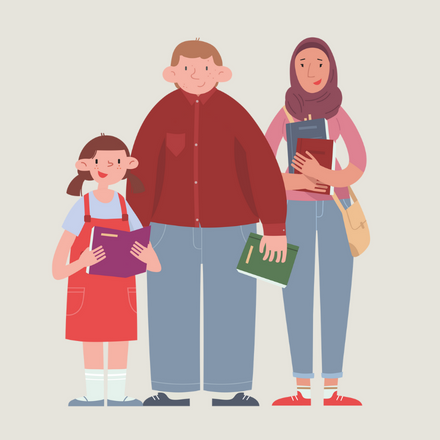The 16 Days of Activism against Gender-Based Violence is an annual campaign that begins on 25 November and runs until International Human Rights Day on 10 December.
This year, we’re partnering with Respect Victoria to support local community engagement with the 16 Days of Activism ‘Respect Women: Call It Out (Respect Is)’ statewide campaign. We’ve been working with councils and statewide community health organisations around Victoria, and we look forward to sharing updates on their inspiring grassroots initiatives through our social media channels.
Connect with us here:
For each of the 16 Days, we’ll also be sharing a diverse range of resources from local, national, and international organisations working to eliminate family and gender-based violence. These are summarised below. We hope these resources support you in your learning and activism.
- UN Women #pushforward video
- Respect Victoria’s ‘Stories of Respect’ video series
- Safe and Equal & Respect Victoria’s 16 Days resources, including a helpful toolkit you can use in your own activism.
If you or someone you know might be experiencing this kind of abuse, what can I do?
Visit Good Shepherd Australia New Zealand’s Financial Independence Hub – a free, confidential, personalised service supporting people previously impacted by financial abuse across Australia.
- Read the Conversation’s Catcalls, homophobia and racism: we studied why people (and especially men) engage in street harassment
- Follow ‘It’s Not a Compliment’ on Instagram
- Watch Respect Victoria’s Call It Out (Public Transport) video
- Learn more about Achieving Justice for Street Harassment, a project aiming to develop victim-centred understandings of justice in response to street harassment
- Report street harassment experiences through platforms like:
- Read Jane Gilmore’s book ‘Fixed It’ – it’s a great resource on violence and the representation of women in the media.
- Check out Our Watch’s guidelines for reporting on violence against women.
- Watch Respect Victoria’s consent reel, with tips to ask for consent from CEO Em Maguire
- Check out WIRE’s resource library at wire.org.au/sexual-consent
- Follow @teachusconsent for easy-to-understand consent and sexuality education content.
- Visit It’s Time We Talked for more information about porn for young people, parents and teachers
- Read Mamaia’s The dangerous sexual practice on the rise for more information about the mainstreaming of sexual strangulation
Take time to learn about and reflect on First Nations history and the impacts of colonialism on Aboriginal and Torres Strait Islander peoples.
- Check out Our Story from the Uluru Statement website
- Read Elizabeth Morgan House’s Become a Deadly Ally tip sheet
- Support Aboriginal-owned businesses, like Clothing the Gaps, Haus of Dizzy, or Baluk Arts.
- Donate to Aboriginal and Torres Strait Islander-led organisations and campaigns, such as Djirra, Pay the Rent, or ANTAR.
If you are an Aboriginal and/or Torres Strait Islander person experiencing family violence, contact these services in Victoria:
Djirra
1800 105 303
Mon-Fri, 9am-10 pm
Elizabeth Morgan House
1800 364 297
24/7
Visit the Safe and Equal’s service directory for more Victorian family violence services.
- Check out Our Watch’s Equality and Respect in Sport resources
- Get involved with Change our Game
- Join the Club Respect movement by signing up your sporting club
- Watch Alexis Jones’ TedX talk on Redefining manhood
- Check out Transfemme, a website with stories, tips and resources to support healthier relationships between trans women and men.
You can call Seniors Rights Victoria on their confidential helpline – 1300 368 821.
You can also visit Compass (www.compass.info), which is a website dedicated to providing information and resources on elder abuse across Australia.
Remember – if you or someone you know is in immediate danger, please call triple zero (000).
- Watch the Victim Survivors’ Advisory Council 2020-2022, More than our story: action, wisdom and change video
- Read about Safe and Equal’s approach to embedding lived experience
- Listen to The Trap podcast
- Want to go deeper? Read our Sources of lived experience in the family violence sector Issues Paper.
Want to learn more?
Check out our campaign resources and upcoming events for the 16 Days of Activism campaign here.
Page last updated Thursday, November 24 2022


